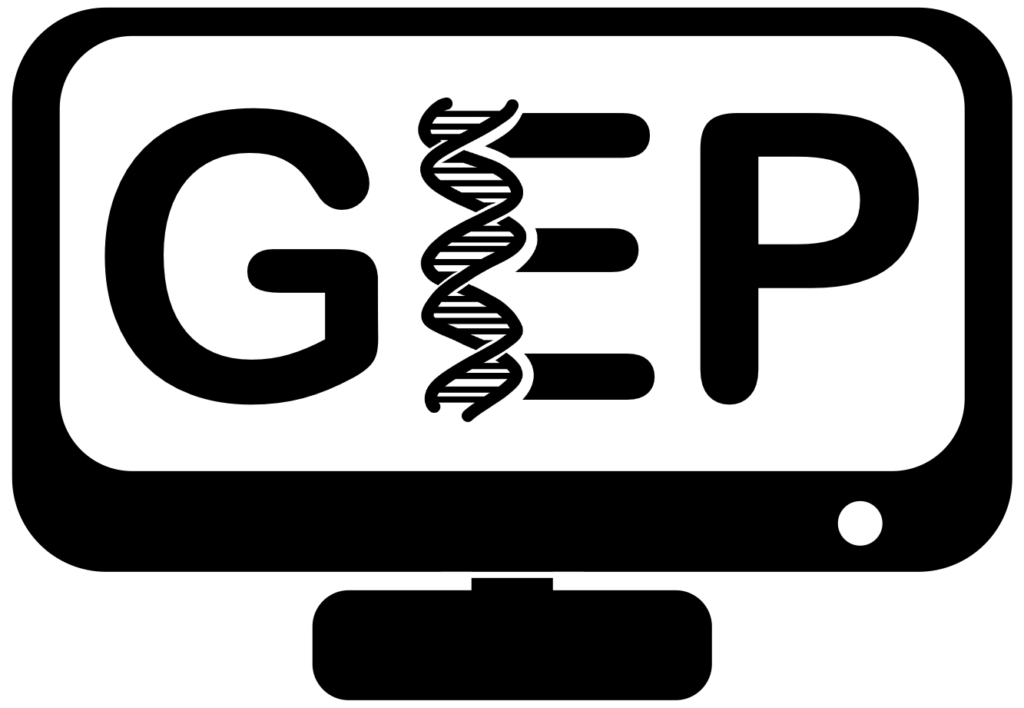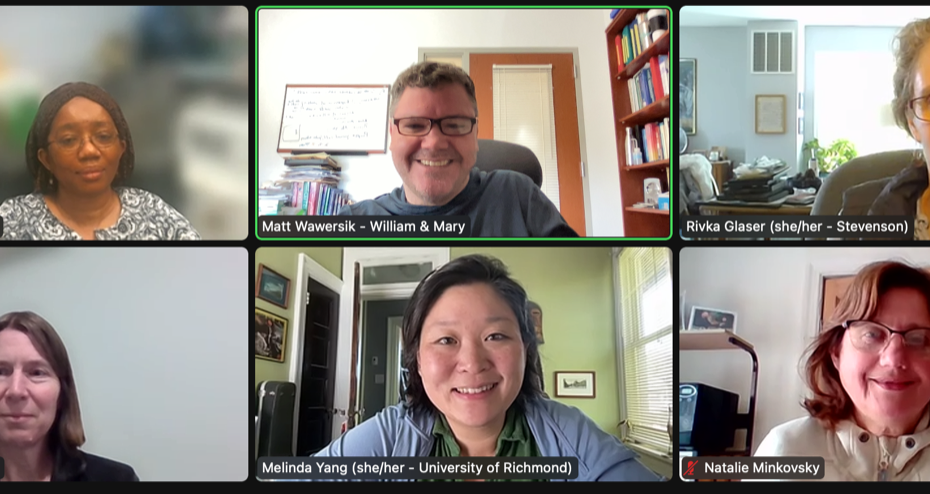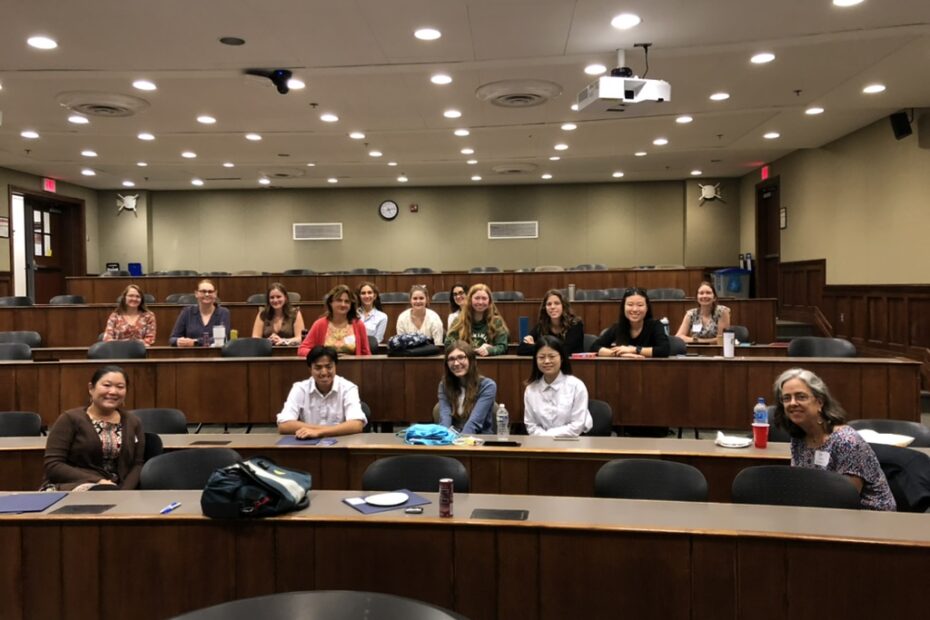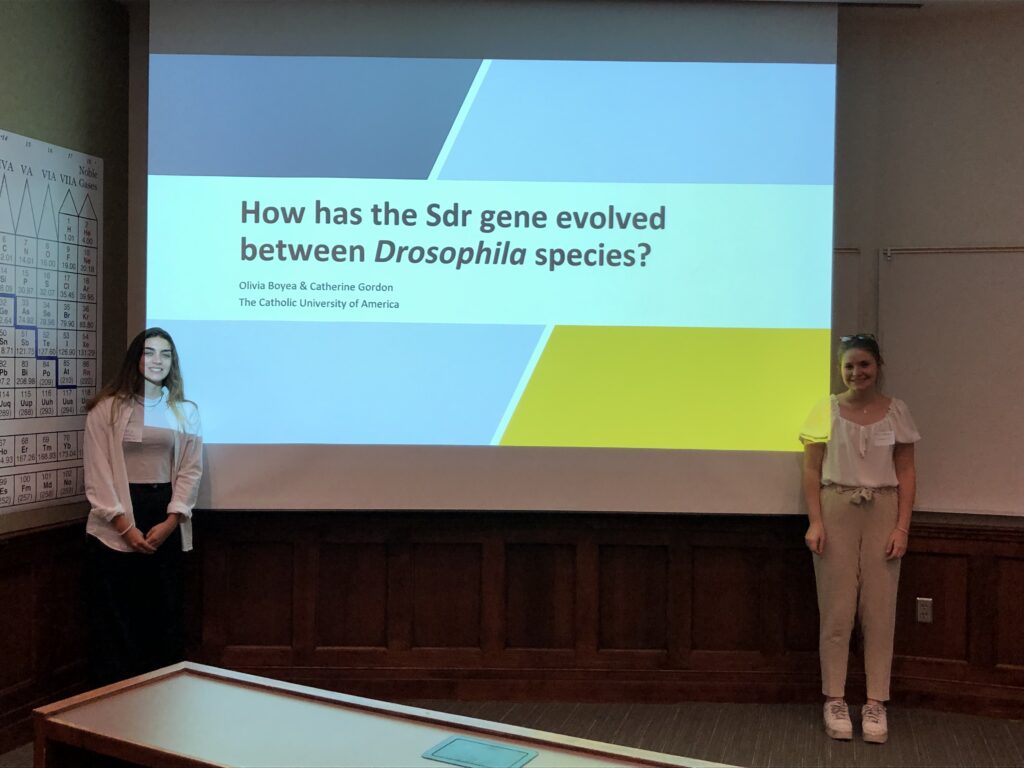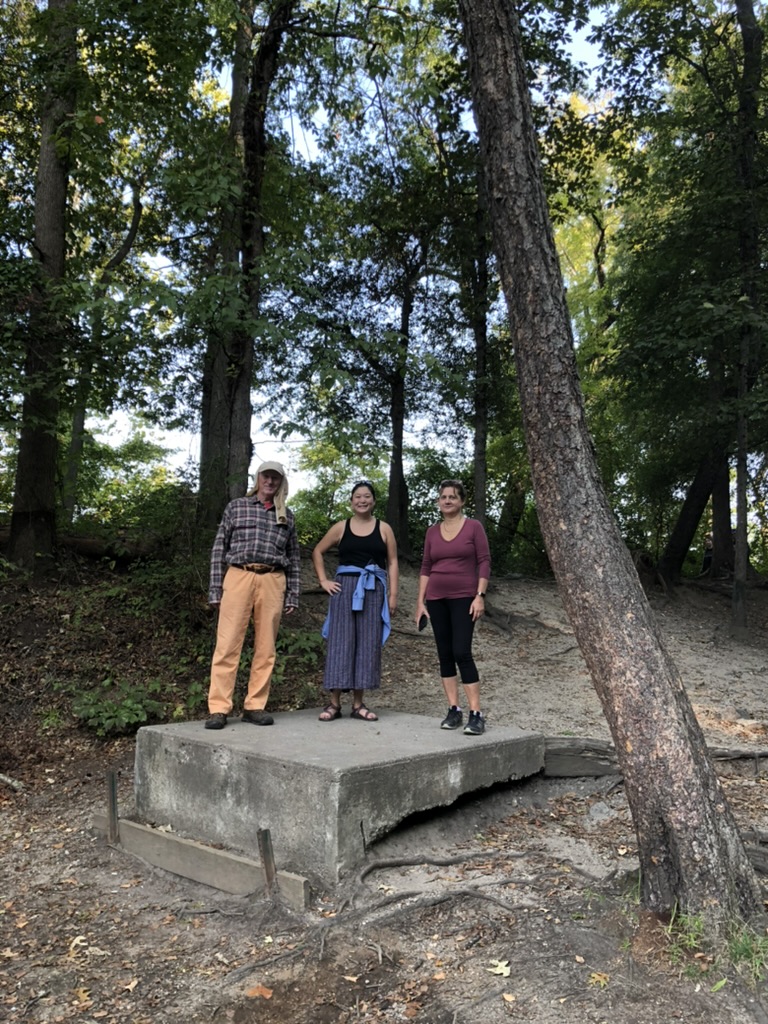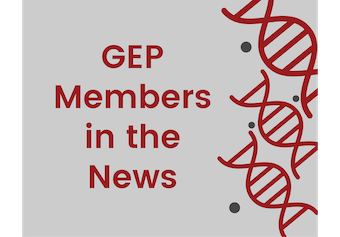DMV Regional Node Meeting – October 21, 2023
The D.C., Maryland, and Virginia (DMV) Regional Node held a faculty-focused professional development event on Oct 21, 2023. In this virtual workshop, faculty from our Node spent a half day having quality discussions about curriculum and pedagogy. Specifically, we walked through a curriculum developed by Dr. Rivka Glaser related to analysis of conserved domains. Portions of this curriculum were designed for intro level students, while others were designed for advanced students. This led to a conversation about course design for students at different levels. These active, hands-on discussions were capped off with a short planning discussion about things our Node would like to achieve in the coming year.
All participating Node members had a hand in planning the event, but special thanks goes to Dr. Rivka Glaser for sharing her curriculum, Dr. Christy Fleet for helping to refine our schedule and guiding questions for pedagogy discussion, Dr. Matt Wawersik as Node Leader and lead organizer for the workshop, and Sarah Crocker-Buta, Dr. Melinda Yang and Dr. Norma Velazquez for additional help with event planning.
What worked well for your event that might help others plan similar events?
Node organizers began planning well ahead of time. This allowed discussion on what the faculty really wanted to talk about, and adaptation of the schedule so that the event could be pulled off. It also allowed for distribution of the workload.
What would your Node do differently based on your experiences?
Not much differently for this event, even though it would have been nice to have more satellite Node members show up. This didn’t happen even after some individual contacts, and it made for a high quality and fun discussion with core members. For the future, regular events with a smaller/active group might feel repetitive if done without students, so alternating years with an in-person event with undergrads participating, and then faculty focused events the next year is a good plan. For faculty focused events, Node leaders might consider inviting another Node and have a multi-Node event to get insight from GEP members outside our Node.
